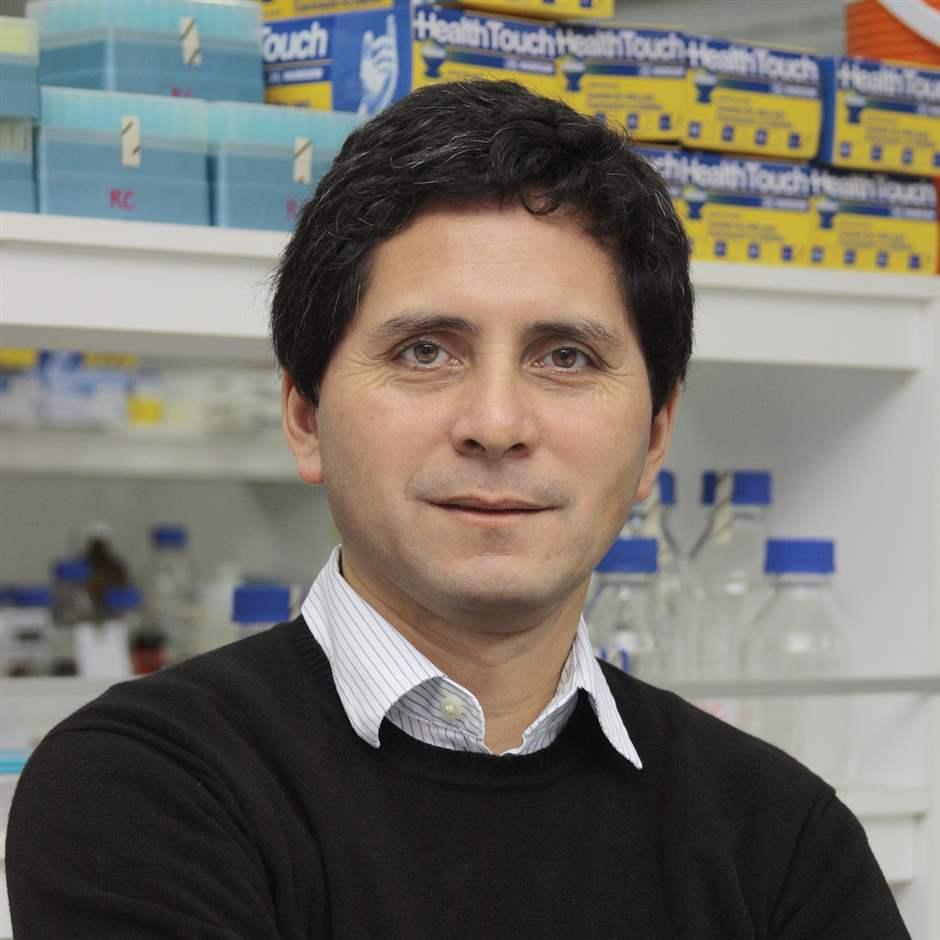Ariel Alejandro Orellana Lopez, Ph.D.

- Title
- Professor
- Department
- Center for Plant Biotechnology
- Institution
- Andres Bello University
- Address
-
Avenida República 217
Postal Code: 837-0146 - City
- Santiago
- Country
- Chile
- Phone
- -226618572
- [email protected]
- Website
- https://www.arabidopsis.org/

- Research field
- Biochemistry
- Award year
- 1991
- Country of origin
- Chile
- Mentor name
- Carlos Hirschberg, Ph.D.
Research
The research in my laboratory is currently focused in three major areas: 1) The biosynthesis of plant cell wall polysaccharides in the Golgi apparatus; 2) The Unfolded Protein Response (UPR) in plants and 3) Genomics and proteomics in fruits. Regarding the biosynthesis of cell wall polysaccharides in the Golgi apparatus, our interest is focused in the nucleotide sugar transporters (NSTs), proteins that are involved in supplying the substrates for the glycosyltransferases located in the lumen of the Golgi apparatus. We propose that by altering the function of the NSTs we could perturb the availabilty of substrates leading to a change in cell wall composition. This work is relevant in a time when the deconstruction of the plant cell wall is important to obtain substrates for biofuels. The Unfolded Protein Response is a signaling pathway that is activated when malfolded proteins are accumulated in the ER. Plants respond to different stresses by increasing the biosynthesis of proteins that are secreted through the secretory pathway. These proteins undergo a quality control process that involved the reglucosylation and retention of the proteins. We are evaluating the importance of the reglucosylation in this process. In addition, we have identified a transcription factor that undergoes an unconventional splicing and seems to be one of the transducers during UPR. This branch of the UPR seems to play an important role during the plant response to pathogens. Fuit quality and the postharvest life are critical issues for the fruit industry. Chile is one of the major fruit exporters; therefore, the chilean producers need varieties that respond properly to the market needs. As a way to identify genes that may be important in providing quality, we are looking for candidate genes and proteins involved in softening as well as an extended storage life.
Fellow Keywords
1991 Search Pew Fellows
- Rogelio O. Arellano, Ph.D.
- Carlos O. Arregui, Ph.D.
- Monika V. de Arruda, Ph.D.
- Angela K. Cruz, Ph.D.
- Ana Belén Elgoyhen, Ph.D.
- Manuel A. Kukuljan, Ph.D.
- Antonio Carlos Oliveira Bruno, Ph.D.
- Ariel Alejandro Orellana Lopez, Ph.D.
- Eduardo A. Perozo, Ph.D.
- Mauricio M. Rodrigues, Ph.D.
- Cecilia V. Rojas, Ph.D.